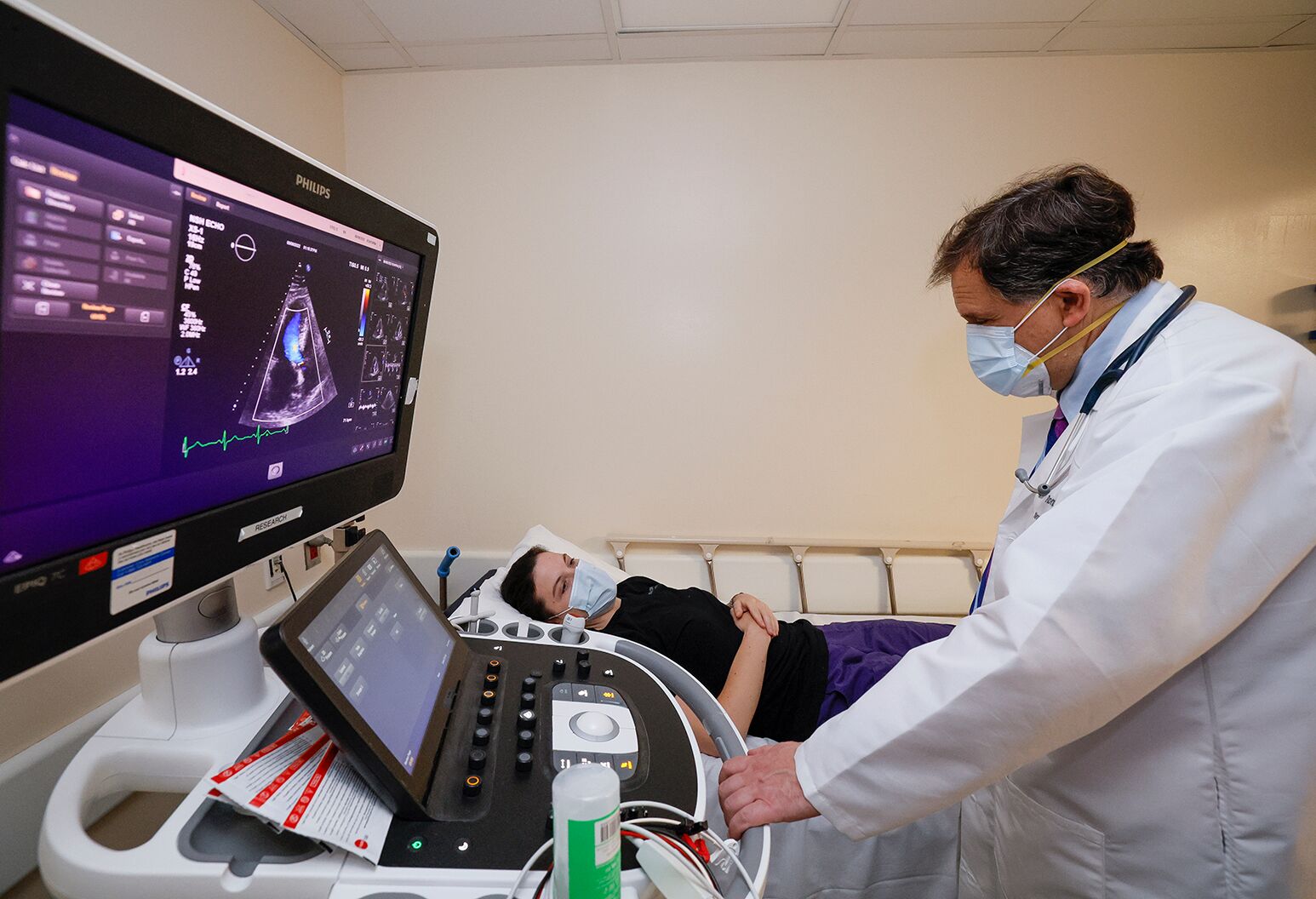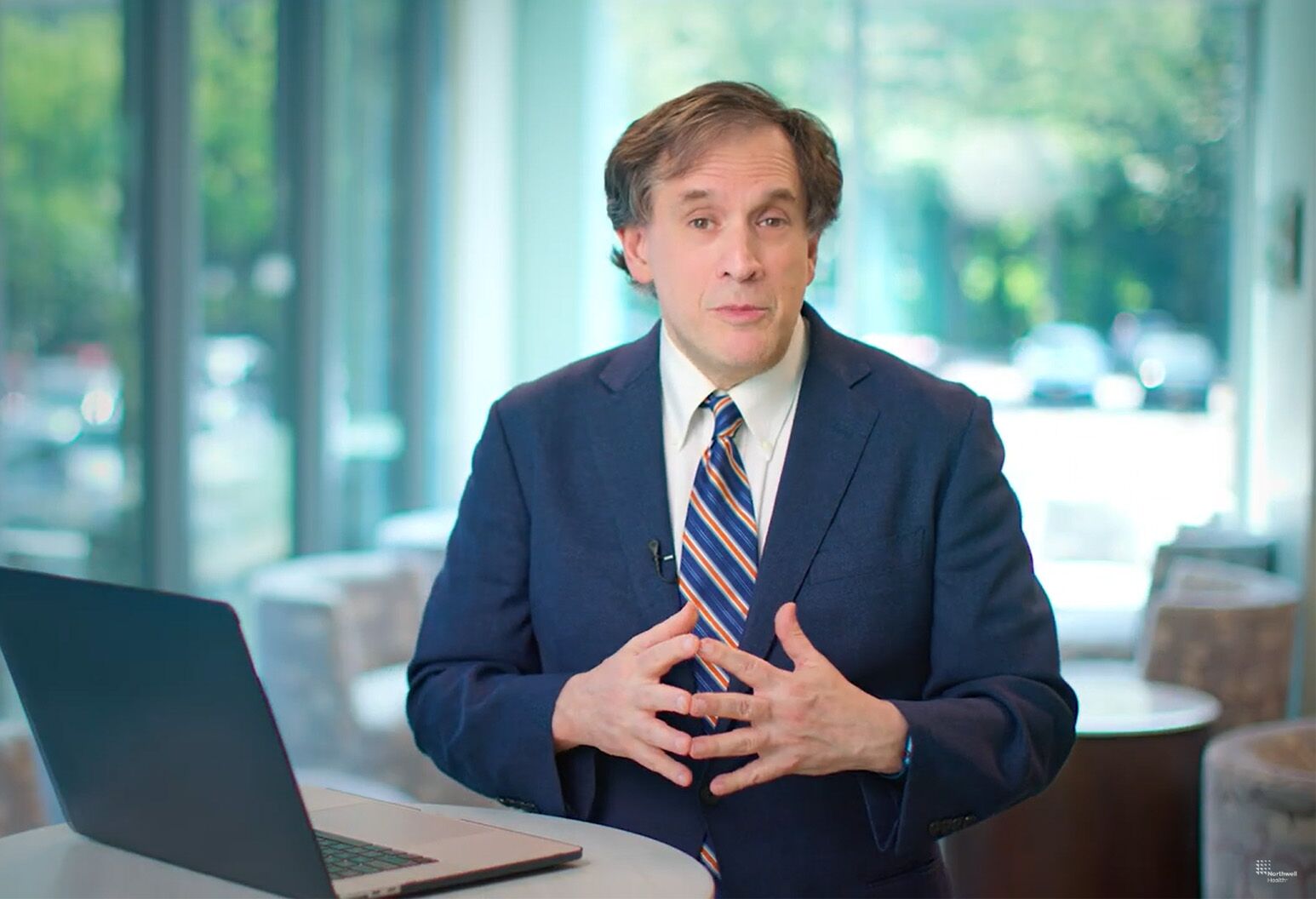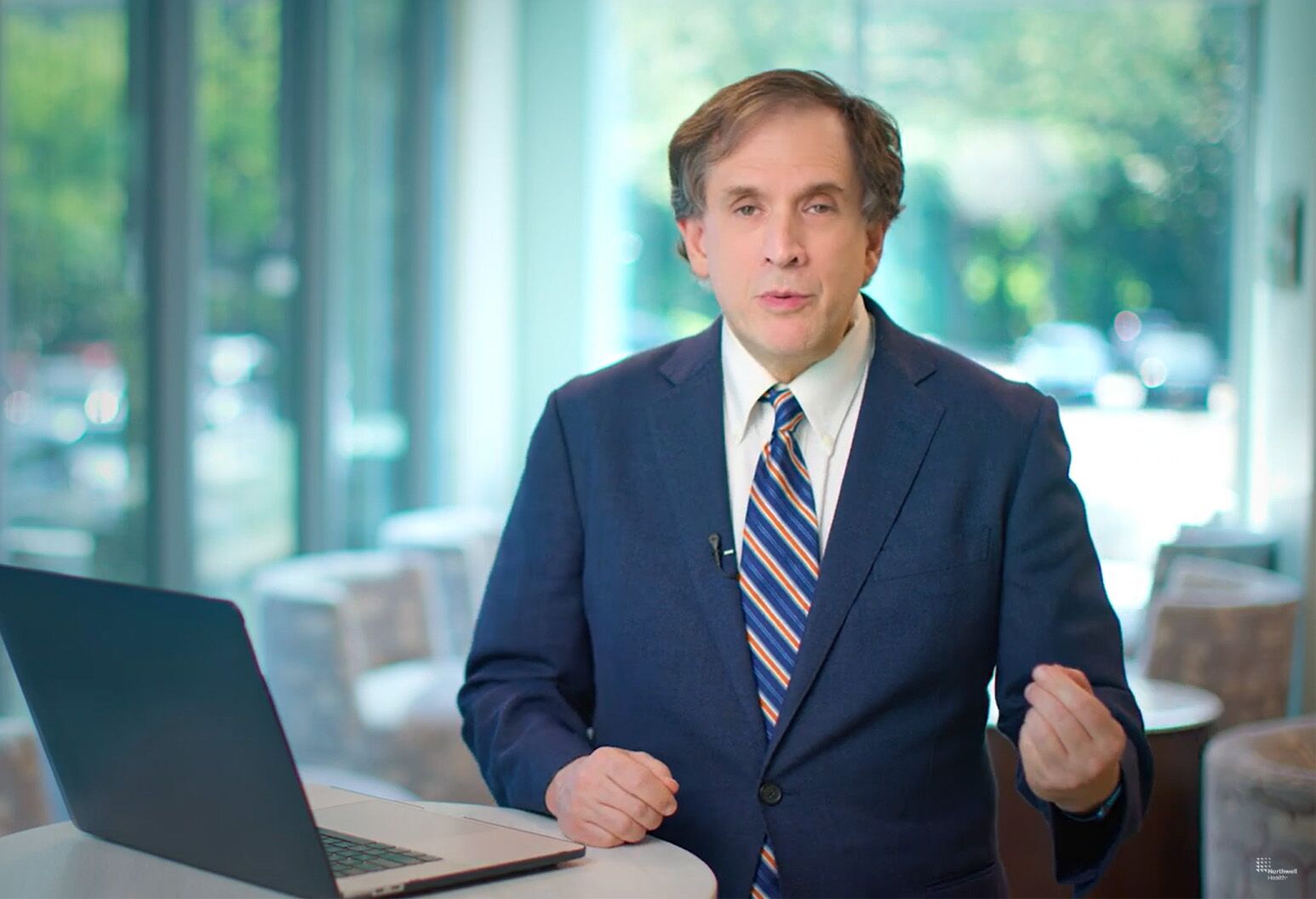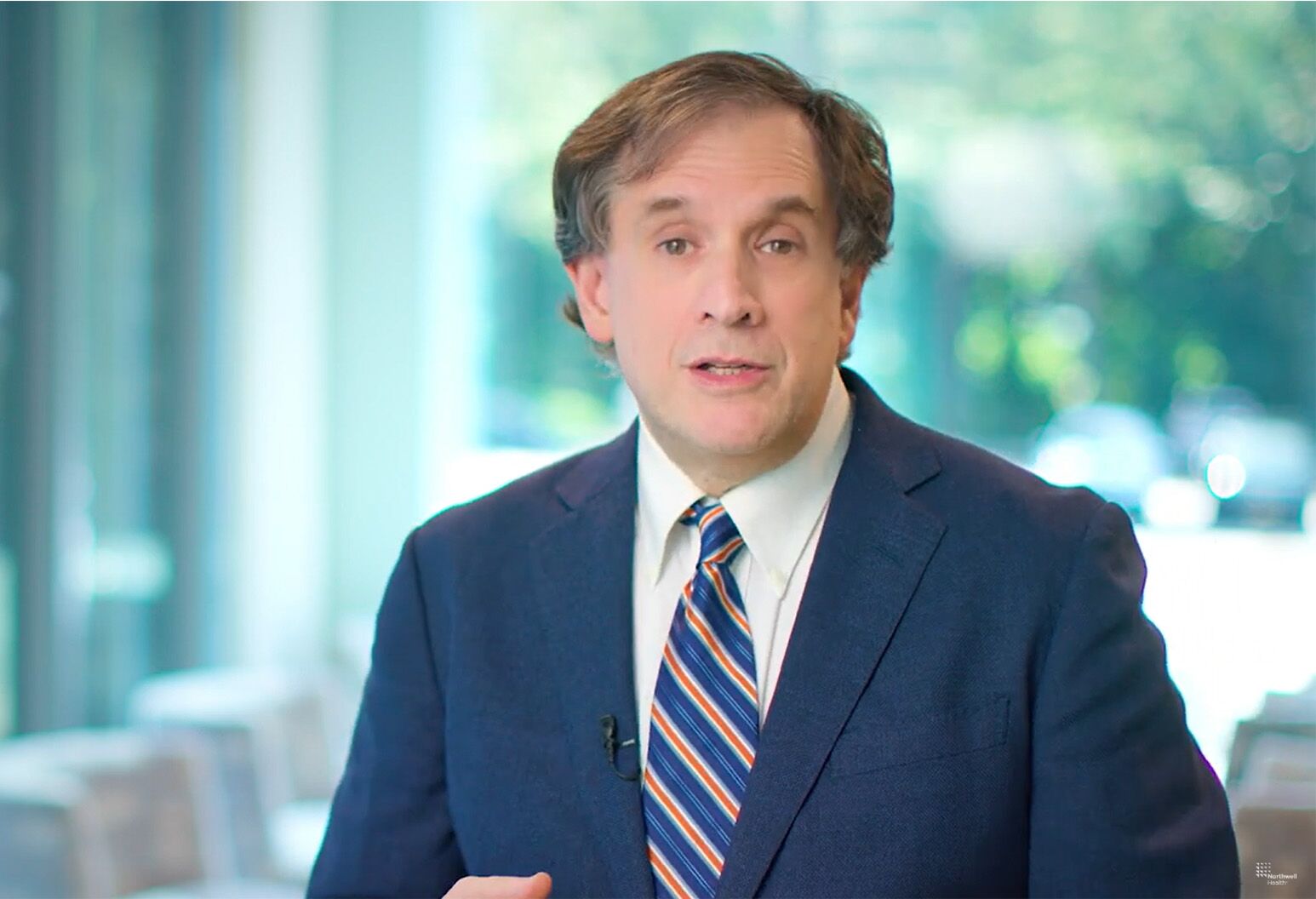Hypertrophic cardiomyopathy
What is hypertrophic cardiomyopathy?
Hypertrophic cardiomyopathy (HCM) is an abnormal thickening of the heart muscle (myocardium). People with HCM also have an abnormal arrangement of heart muscle cells (myofiber disarray), which can contribute to abnormal heart rhythms. HCM is the most common cause of sudden cardiac death in young people, typically due to life-threatening abnormal heart rhythms, which most commonly originate in the left ventricle. Patients are also at increased risk for atrial fibrillation (a-fib), which, left untreated, can lead to stroke.
At the Sandra Atlas Bass Heart Hospital, located in North Shore University Hospital, we have the only full-service HCM program on Long Island. We have the resources and expertise to diagnose your condition, assess its impact on your health and make sure you get the personalized treatment you need to feel well and avoid dangerous complications. Our heart hospital is home to one of New York’s largest and most successful cardiac programs—with a team that includes experts in clinical cardiology, cardiac imaging, electrophysiology, heart failure, heart transplantation and genetics. We also provide genetic counseling and screen family members to identify and prevent health problems.
Symptoms
People experience symptoms differently at various ages. However, with appropriate treatment, those with HCM can live active, healthy lives.
Symptoms may include:
- Shortness of breath
- Heart palpitations
- Loss of consciousness
- Lightheadedness
- Abnormal heart rhythms (which range from mild to fatal)
- Chest pain
Diagnosis
HCM can be diagnosed if a doctor hears a heart murmur during a routine physical exam, which may prompt a referral to a cardiologist. Many times, however, the disease is silent and cannot be detected by a stethoscope.
We use a variety of tests to identify heart arrhythmias, obstructed blood flow and heart valve problems. These include electrocardiography (ECG), echocardiography, exercise stress testing and, if appropriate, ambulatory telemetry that can record heart activity for days or a week or longer. We use cardiac magnetic resonance imaging (MRI) to assess thickening and inflammation in the heart muscle, in order to evaluate your risk and prevent dangerous complications including sudden cardiac arrest.
Treatment
Your condition may require active management. We make it as easy as possible to schedule appointments across any specialties you many need, and we simplify the process of coordinating future surgeries or procedures.
Pregnant women with HCM will be seen by both a cardiologist and a physician trained in high-risk obstetrics. We have a comprehensive cardio-obstetric program (part of our Center for High Risk Pregnancy) and offer extensive experience in delivering high-risk obstetrical care.
- Medication: Medications are a critical part of treatment. They are prescribed to allow the heart to relax more easily and maintain a normal rhythm, and sometimes to reduce how strongly the heart contracts. We will also inventory any other medications you take to make sure nothing worsens your HCM.
- Devices: If you are at high risk for life-threatening arrhythmias, we may recommend the implantation of a defibrillator. This device can detect early signs of a life-threatening arrhythmia and rapidly bring it to an end.
- Procedures: If you need a procedure such as myectomy (surgery that reduces the thickness of the heart muscle) or alcohol septal ablation (in which a targeted injection of alcohol causes some of the heart muscle tissue to shrink and die, reducing thickness), we’ll make it easy to coordinate your care.
Genetic counseling
HCM is caused by gene mutations that make heart muscle grow abnormally thick. People with identical genetic changes (such as relatives within a single family) can have more or less thickening of the heart muscle, or thickening in different locations. As a result, the severity of the condition varies.
A cardiac genetic evaluation can help you understand the genetic mutation responsible for your condition and help you make decisions about treatment. It’s important to know that genetic tests may not provide a definitive answer, because the genetic causes of hypertrophic cardiomyopathy aren't fully understood. Only about 50% of families with HCM have a currently detectable mutation. However, if an abnormal gene is detected in your family, genetic testing will allow other family members to learn if they are at risk of HCM.
Our genetics team is led by a cardiologist trained in clinical cardiology and cardiac genetics, a board-certified genetic counselor, and a clinical scientist who is an expert in genetic predispositions to cardiac disorders (and who has a joint faculty appointment at Sandra Atlas Bass Heart Hospital and Cohen Children’s Medical Center). We are closely affiliated with the Northwell Center for Cardiac Genetics, Genomics and Precision Medicine as well.
Ronald Wharton, MD, shares how mavacamten, the first medication designed to treat HCM, is offering hope for those with this condition.






